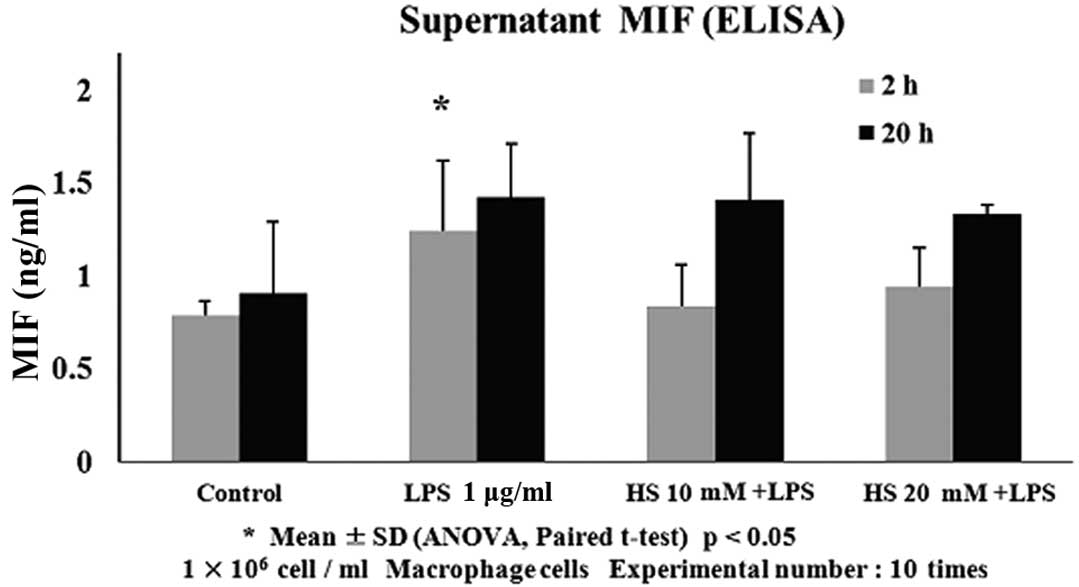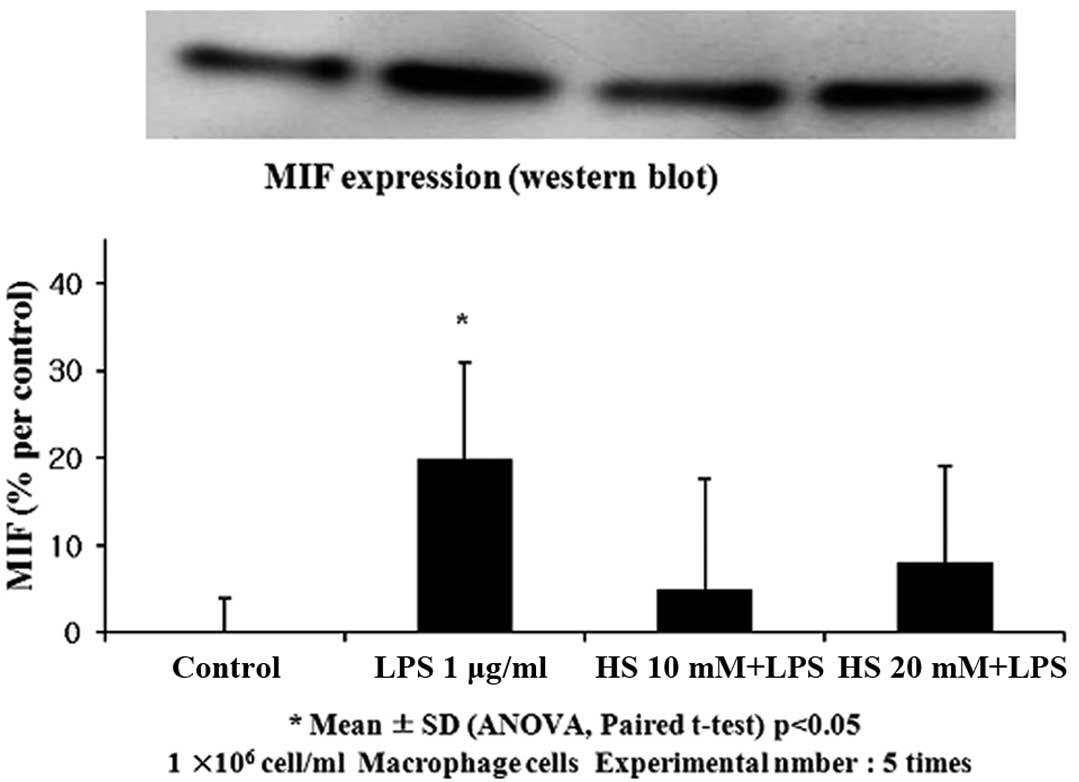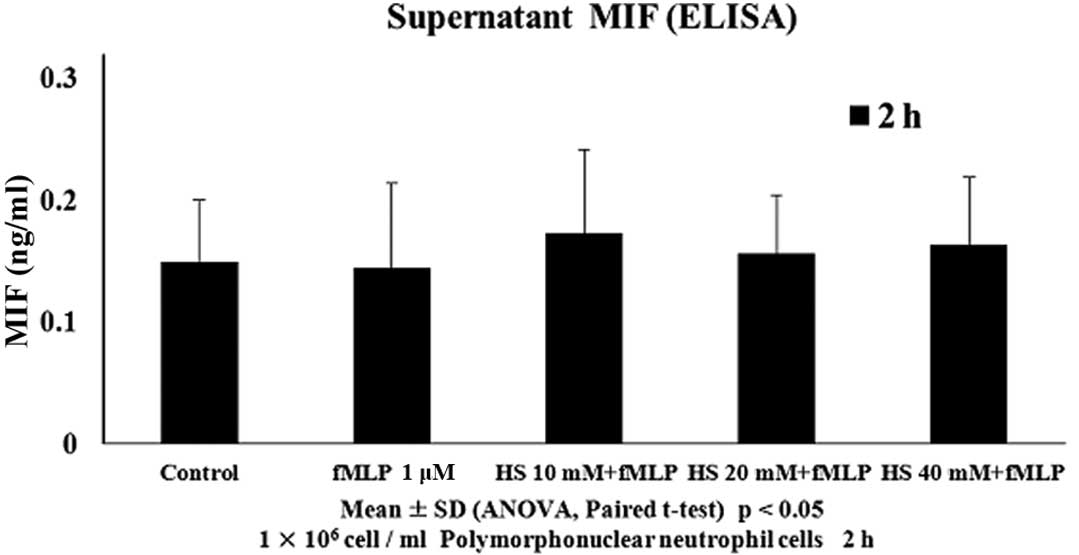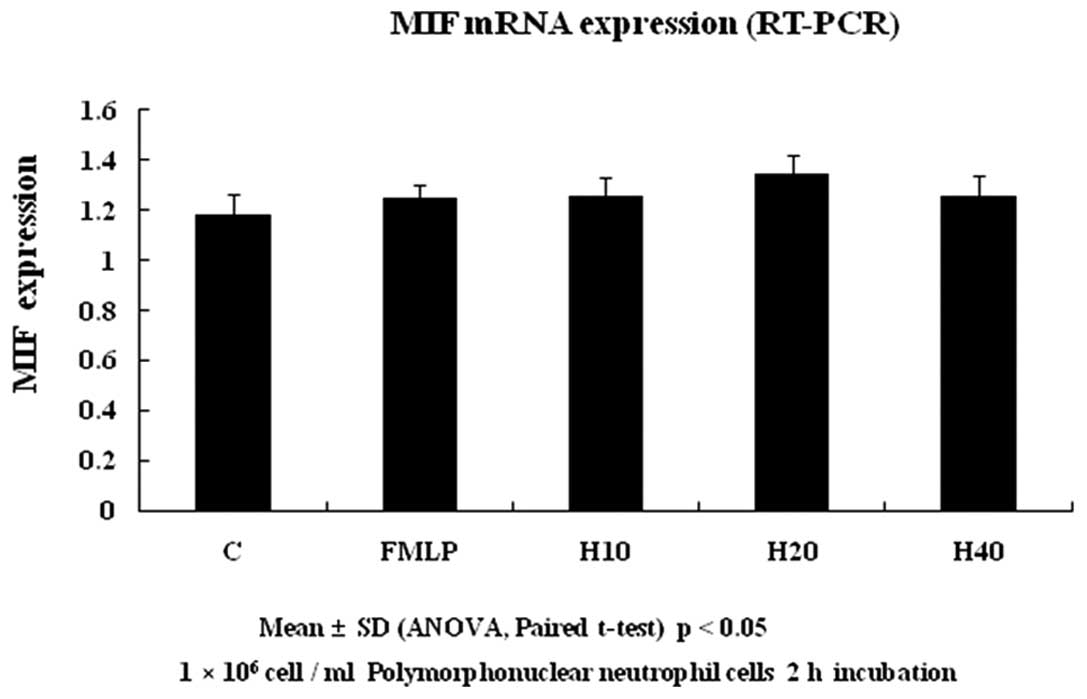|
1
|
Tsiotou AG, Sakorafas GH, Anagnostopoulos
G and Bramis J: Septic shock; current pathogenetic concepts from a
clinical perspective. Med Sci Monit. 11:RA76–85. 2005.PubMed/NCBI
|
|
2
|
Keel M and Trentz O: Pathophysiology of
polytrauma. Injury. 36:691–709. 2005. View Article : Google Scholar
|
|
3
|
Faist E, Baue AE, Dittmer H and Heberer G:
Multiple organ failure in polytrauma patients. J Trauma.
23:775–787. 1983. View Article : Google Scholar : PubMed/NCBI
|
|
4
|
Moore FA and Moore EE: Evolving concepts
in the pathogenesis of postinjury multiple organ failure. Surg Clin
North Am. 75:257–277. 1995.PubMed/NCBI
|
|
5
|
Coimbra R, Hoyt DB, Junger WG, Angle N,
Wolf P, Loomis WH and Evers MF: Hypertonic saline resuscitation
decreases susceptibility to sepsis after hemorrhagic shock. J
Trauma. 42:602–607. 1997. View Article : Google Scholar : PubMed/NCBI
|
|
6
|
Junger WG, Coimbra R, Liu FC,
Herdon-Remelius C, Junger W, Junger H, Loomis WH, Hoyt DB and
Altman A: Hypertonic saline resuscitation: a tool to modulate
immune function in trauma patients? Shock. 8:235–241. 1997.
View Article : Google Scholar : PubMed/NCBI
|
|
7
|
Angle N, Hoyt DB, Coimbra R, Liu F,
Herdon-Remelius C, Loomis W and Junger WG: Hypertonic saline
resuscitation diminishes lung injury by suppressing neutrophil
activation after hemorrhagic shock. Shock. 9:164–170. 1998.
View Article : Google Scholar : PubMed/NCBI
|
|
8
|
Staudenmayer KL, Maier RV, Jelacic S and
Bulger EM: Hypertonic saline modulates innate immunity in a model
of systemic inflammation. Shock. 23:459–463. 2005. View Article : Google Scholar : PubMed/NCBI
|
|
9
|
Fan J, Marshall JC, Jimenez M, Shek PN,
Zagorski J and Rotstein OD: Hemorrhagic shock primes for increased
expression of cytokine-induced neutrophil chemoattractant in the
lung: role in pulmonary inflammation following lipopolysaccharide.
J Immunol. 161:440–447. 1998.
|
|
10
|
Botha AJ, Moore FA, Moore EE, Fontes B,
Banerjee A and Peterson VM: Postinjury neutrophil priming and
activation states: therapeutic challenges. Shock. 3:157–166. 1995.
View Article : Google Scholar : PubMed/NCBI
|
|
11
|
Kuchkina NV, Orlov SN, Pokudin NI and
Chuchalin AG: Volume-dependent regulation of the respiratory burst
of activated human neutrophils. Experientia. 49:995–997. 1993.
View Article : Google Scholar : PubMed/NCBI
|
|
12
|
Hampton MB, Chambers ST, Vissers MC and
Winterbourn CC: Bacterial killing by neutrophils in hypertonic
environments. J Infect Dis. 169:839–846. 1994. View Article : Google Scholar : PubMed/NCBI
|
|
13
|
Davreux CJ, Soric I, Nathens AB, Watson
RW, McGilvray ID, Suntres ZE, Shek PN and Rotstein OD: N-acetyl
cysteine attenuates acute lung injury in the rat. Shock. 8:432–438.
1997. View Article : Google Scholar : PubMed/NCBI
|
|
14
|
Powers KA, Zurawska J, Szaszi K, Khadaroo
RG, Kapus A and Rotstein OD: Hypertonic resuscitation of
hemorrhagic shock prevents alveolar macrophage activation by
preventing systemic oxidative stress due to gut
ischemia/reperfusion. Surgery. 137:66–74. 2005. View Article : Google Scholar
|
|
15
|
Bernhagen J, Calandra T and Bucala R:
Regulation of the immune response by macrophage migration
inhibitory factor: biological and structural features. J Mol Med
(Berl). 76:151–161. 1998. View Article : Google Scholar : PubMed/NCBI
|
|
16
|
Daigneault M, Preston JA, Mariott HM,
Whyte MK and Dockrell DH: The identification of markers of
macrophage differentiation in PMA-stimulated THP-1 cells and
monocyte-derived macrophages. PLoS One. 5:e86682010. View Article : Google Scholar : PubMed/NCBI
|
|
17
|
Schaeffer V, Arbabi S, Garacia IA, Knoll
ML, Cuschieri J, Bulger EM and Maier RV: Role of the mTOR Pathway
in LPS-Activated Monocytes: influence of hypertonic saline. J Surg
Res. 171:769–776. 2011. View Article : Google Scholar : PubMed/NCBI
|
|
18
|
Himmelseher S: Hypertonic saline solutions
for treatment of intracranial hypertension. Curr Opin Anaesthesiol.
20:414–426. 2007. View Article : Google Scholar : PubMed/NCBI
|
|
19
|
Bulger EM, Jurkovich GJ, Nathens AB, et
al: Hypertonic resuscitation of hypovolemic shock after blunt
trauma: a randomized controlled trial. Arch Surg. 143:139–148.
2008. View Article : Google Scholar : PubMed/NCBI
|
|
20
|
Poli-de-Figueiredo LF, Cruz RJ Jr,
Sannomiya P and Rocha-E-Silva M: Mechanisms of action of hypertonic
saline resuscitation in severe sepsis and septic shock. Endocr
Metab Immune Disord Drug Targets. 6:201–206. 2006. View Article : Google Scholar : PubMed/NCBI
|
|
21
|
Deitch EA, Shi HP, Feketeova E, et al:
Hypertonic saline resuscitation limits neutrophil activation after
trauma-hemorrhagic shock. Shock. 19:328–333. 2003. View Article : Google Scholar : PubMed/NCBI
|
|
22
|
Chen Y, Hashiguchi N, Yip L and Junger WG:
Hypertonic saline enhances neutrophil elastase release through
activation of P2 and A3 receptors. Am J Physiol Cell Physiol.
290:C1051–C1059. 2006. View Article : Google Scholar : PubMed/NCBI
|
|
23
|
Choi SH, Lee SW, Hong YS, et al: Selective
inhibition of polymorphonuclear neutrophils by resuscitative
concentration of hypertonic saline. Emerg Med J. 23:119–122. 2006.
View Article : Google Scholar : PubMed/NCBI
|
|
24
|
Hashiguchi N, Lum L, Romeril E, et al:
Hypertonic saline resuscitation: efficacy may require early
treatment in severely injured patients. J Trauma. 62:299–306. 2007.
View Article : Google Scholar : PubMed/NCBI
|
|
25
|
Hatanaka E, Shimomi FM, Curi R and Campa
A: Sodium chloride inhibits cytokine production by
lipopolysaccharide-stimulated human neutrophils and mononuclear
cells. Shock. 27:32–35. 2007. View Article : Google Scholar
|
|
26
|
Bloom BR and Bennett B: Mechanism of a
reaction in vitro associated with delayed-type hypersensitivity.
Science. 153:80–82. 1966. View Article : Google Scholar : PubMed/NCBI
|
|
27
|
David JR: Delayed hypersensitivity in
vitro: its mediation by cell-free substances formed by lymphoid
cell-antigen interaction. Proc Natl Acad Sci USA. 56:72–77. 1966.
View Article : Google Scholar : PubMed/NCBI
|
|
28
|
Nathan CF, Karnovsky ML and David JR:
Alterations of macrophage functions by mediators from lymphocytes.
J Exp Med. 133:1356–1376. 1971. View Article : Google Scholar : PubMed/NCBI
|
|
29
|
Nathan CF, Remold HG and David JR:
Characterization of a lymphocyte factor which alters macrophage
functions. J Exp Med. 137:275–290. 1973. View Article : Google Scholar : PubMed/NCBI
|
|
30
|
Vulcano M, Alves Rosa MF, Minnucci FS,
Cherñavsky AC and Isturiz MA:
N-formyl-methionyl-leucyl-phenylalanine (fMLP) inhibits tumour
necrosis factor-alpha (TNF-alpha) production on lipopolysaccharide
(LPS)-stimulated human neutrophils. Clin Exp Immunol. 113:39–47.
1998. View Article : Google Scholar
|
|
31
|
Stewart I, Schluter PJ and Shaw GR:
Cyanobacterial lipopolysaccharides and human health - a review.
Environ Health. 5:72006. View Article : Google Scholar : PubMed/NCBI
|
|
32
|
Snyderman R: Regulation of Leukocyte
Function. Pleman; New York, NY: 1984, View Article : Google Scholar
|
|
33
|
Yoon YH, Choi SH, Hong YS, Lee SW, Moon
SW, Cho HJ, et al: Effect of hypertonic saline and macrophage
migration inhibitory factor in restoration of T cell dysfunction. J
Korean Surg Soc. 81:229–234. 2011. View Article : Google Scholar : PubMed/NCBI
|
|
34
|
Schmidt-Supprian M, Murphy C, While B,
Lawler M, Kapurniotu A, Voelter W, et al: Activated protein C
inhibits tumor necrosis factor and macrophage migration inhibitory
factor production in monocytes. Eur Cytokine Netw. 11:407–413.
2000.
|


















